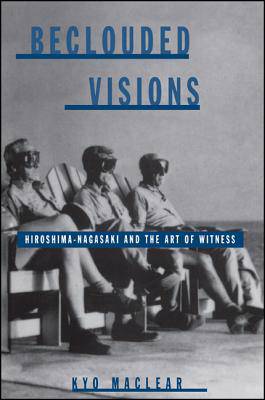
- Retrait gratuit dans votre magasin Club
- 7.000.000 titres dans notre catalogue
- Payer en toute sécurité
- Toujours un magasin près de chez vous
- Retrait gratuit dans votre magasin Club
- 7.000.0000 titres dans notre catalogue
- Payer en toute sécurité
- Toujours un magasin près de chez vous
Description
The trauma of Hiroshima and Nagasaki demonstrates the limits of dominant visual models, such as photography, for providing adequate historical memory. The author argues that collective traumas suggest the need for a prolonged gaze, such as can be provided by expressive art.
Beclouded Visions is an exploration of the many and varied ways in which atrocity has shaped the requirements of art, vision, and collective memory in the twentieth century. The atomic bombs that were dropped on Hiroshima and Nagasaki serve as a starting point, but what begins as a study of visual culture related to the atomic bombings soon generates questions that can be applied to multiple sites and practices of communal remembrance.
Drawing on a diverse array of images-ranging from military photographs to survivor paintings-Maclear asks what it means to see such representations. What does it mean to put a face to horror? Does "seeing everything" make us more humane? Is it possible to become inured to images of violence? She probes the nature of our fascination with images of horror, and she questions our attachment to pictorial realism and graphic memory. Placing philosophers such as Jacques Derrida, Walter Benjamin, and Theodore Adorno in the context of ongoing debates about history and memory, Beclouded Visions provides a refreshing perspective on art, remembrance, and mourning.
Spécifications
Parties prenantes
- Auteur(s) :
- Editeur:
Contenu
- Nombre de pages :
- 213
- Langue:
- Anglais
- Collection :
Caractéristiques
- EAN:
- 9780791440056
- Date de parution :
- 22-10-98
- Format:
- Livre relié
- Format numérique:
- Genaaid
- Dimensions :
- 152 mm x 229 mm
- Poids :
- 471 g

Les avis
Nous publions uniquement les avis qui respectent les conditions requises. Consultez nos conditions pour les avis.






